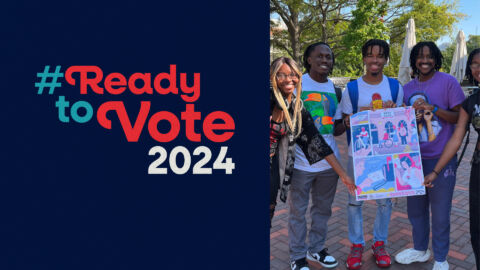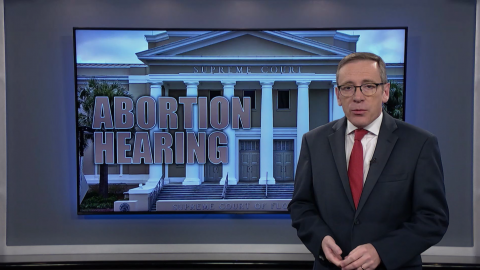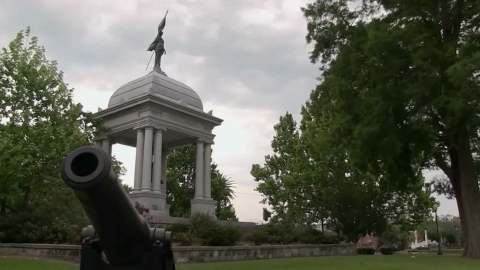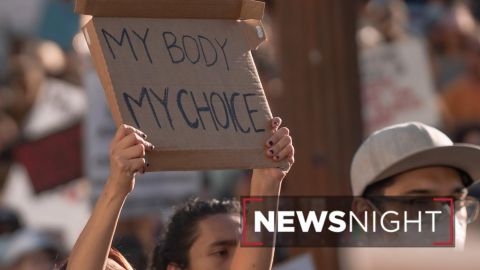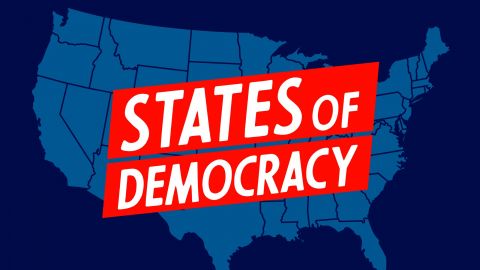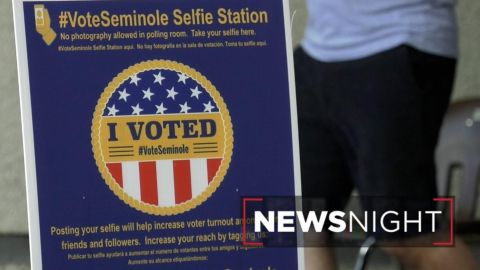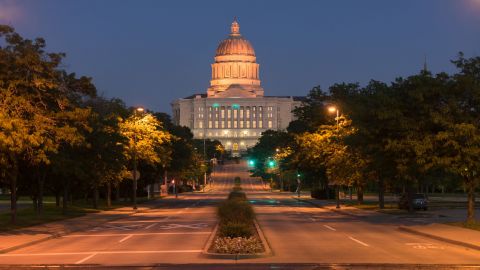- [Announcer] This is a production of WEDU PBS, Tampa, St. Petersburg, Sarasota.
- Next on WEDU, the state legislature begins its annual session with proposed laws that could have a deep impact on Florida.
The governor issues his state of the state message.
The Democrats respond.
Is book banning in Florida a hoax?
And some upsets in the Tampa City elections.
All this and more, next on "Florida This Week."
(suspenseful music) Welcome back, joining us on our panel this week, Lawrence Mower is the Tallahassee correspondent for the Tampa Bay Times.
Kimberly Leonard covers Florida policy and politics for insider.com.
Trimmel Gomes is a journalist and president of Gomes Media Strategies, and William Marsh is a political correspondent for the Tampa Bay Times.
Nice to see all of you.
Thank you for doing the program.
Well, the annual two month session of the state legislature got underway this week in Tallahassee with Republicans enjoying a super majority and Democrats having even less power than last year.
The session opened with the traditional state of the state message from the governor where he boasted about the number of people moving into Florida and that the state is number one for economic growth among the largest states.
And he referred to the cultural issues that he's pushed in his first four years.
- So we find ourselves in Florida on the front lines in the battle for freedom.
Together, we have made Florida the nation's most desired destination, and we have produced historic results.
But now's not the time to rest on our laurels.
We have the opportunity and indeed the responsibility to swing for the fences so that we can ensure Florida remains number one, don't worry about the chattering class.
Ignore all the background noise.
Keep the compass set to true north.
We will stand strong.
We will hold the line.
We won't back down.
And I can promise you this, you ain't seen nothing yet.
- [Narrator] In the Democrats response, Senate minority leader Lauren Book said the governor's agenda is the opposite of freedom.
- Banning books, that's not freedom.
Limiting protests against the government, that's not freedom.
Claiming to be pro-business, yet attacking Florida's businesses both big and small, that is not freedom.
Forced pregnancy and birth even in cases of rape and incest, that is not freedom.
The party of supposed limited government has developed a taste for control and with it, an aversion to accountability, hiding behind a brand of freedom I don't recognize.
- [Narrator] Republicans have controlled most of state governments since the late 1990s.
But with last fall's elections, the GOP gained even greater control.
Not one member of the Florida cabinet is a Democrat.
Republicans hold an 85 to 35 advantage in Florida's house and a 28 to 12 majority in the Senate.
It means the conservative party will be able to pass their agenda with Democrats having little or no say.
Among the bills being considered in the session, there's a measure to ban abortions after six weeks of pregnancy or two weeks after a woman misses her period.
It would offer exemptions for victims of rape and incest if they can provide proof of the crime.
Another bill would allow gun owners to carry concealed, loaded guns without permits and without any training required.
There's a proposed law to expand school vouchers to all students.
School choice advocates support the proposal saying all parents deserve state funding to help pay for whatever education they deem best for their kids.
Critics argue that vouchers for all will mean more public money spent on private, often religious schools that operate without state oversight.
And another bill would make it harder for some public employees to be represented by a union.
That bill would ban the automatic deduction of dues from union members' paycheck.
It would also require that 60% of workers eligible for union representation be dues paying members.
If the bargaining unit does not reach 60%, the union would not be recognized.
So Lawrence, if you were to pick one of the bills that's moving quickly, that's gonna have the most impact on Florida, which bill would you point to?
- Well, there's quite a few.
They're moving really fast up here.
If we're talking about pure impact for people, it's gotta be the school voucher bill, which would basically give every school-aged child more than $8,000 to spend on either private schools or homeschooling or with their public schools.
I mean, we're talking, this would be basically the culmination of Jeb Bush's school choice efforts, going back 25 plus years now.
And so, that would affect every school-aged child, their parents, potentially.
The big question of course, would this really, how many kids or parents would be using this to change to a different school that remains to be seen, but at least on paper it would affect more people than anybody else.
But they're moving forward on a bunch of stuff.
- Hey, Lawrence, would that apply to rich people as well as poor people?
And have they identified the cost of this?
- Well, the big question is the cost.
But to answer your question, yes, anybody would, I mean, 'cause the committee chair representative Randy Fine, who's from Brevard County, he's a millionaire, he said, "I'd get this."
But again, the big question is cost.
With this cost, we're talking hundreds of millions of dollars or potentially billions of dollars coming out of public schools, we really don't know yet.
- Kimberly, if you were to select a bill or two, that is gonna have far-reaching implications, which one would you pick?
- Well, the topic that I feel like is on the minds of everyone that I know is affordable housing.
I mean, rents are going up.
The cost of living is going up so much.
There's a lot of uncertainty about what's gonna happen with the economy.
And the bill that's right now being considered doesn't allow for rent control, which is something that a lot of folks who've moved here from New York, for example are always asking me about, why don't they have rent control here?
So it actually prohibit localities from implementing that, and mostly it would provide tax credits and then incentivize various apartment buildings to build more local and to build in a way that is more affordable.
So that's really what's on the table right now and making its way through the legislature.
- So what about, there's a lot of issues in Florida, Kimberly transportation, teacher shortages, rising electric costs, homeowner's insurance is still going up.
We've got climate change.
There's a whole question about Medicaid expansion, those issues, those kind of issues.
Is the legislature gonna deal with any of those?
- Well, it's not that they're not going to deal with any of them, it's just that a lot of the culture war battles are really taking up a lot of the oxygen.
They had, obviously, people are very worried about some of the proposals that have been put forth regarding, you know, race, gender, and those kinds of teachings and how workplaces are gonna operate even on immigration.
And so, the affordability piece is something that Democrats have really criticized Republicans in the legislature over, and they've said, the focus really needs to be on affordability.
Now, DeSantis has sort of shot back that, well, no, we're doing a big tax relief bill, and it will be rather large.
It'll be on sales taxes on a number of items.
But there still is a lot of trepidation.
Florida used to be much more affordable, but with the, ever since COVID with inflation, with the number of people moving here with jobs that from states that are more expensive, that pay higher, it's just become a real struggle for a lot of families.
- And the governor has proposed a tax break for a lot of things that people buy for their kids, like diapers and other things, baby food.
Trimmel, what about you?
If you were to pick one of the measures that's being considered in Tallahassee, which do you think is most consequential?
- Wow, you had me whittled down to one after that wonderful list that you talked about at the top of the show.
There's so much going on.
But if picking one, I would go to how we are receiving information about what's happening in Tallahassee, bills that are being pushed forward, that deals with like, who is writing critically about either the governor or a particular lawmaker.
There is a bill that deems to target bloggers.
I have a podcast, people like myself who follow the process and talk about what's going on here in Tallahassee for the public.
I wouldn't be charged fine or I would have to register with the state and if not be charged, what will that have with organizations around the country, around the world who wants to cover Florida politics?
So there's a lot going on if this is one, it's like how do we tell the public what's going on here in Tallahassee?
That's a concern for me.
- This Blogger Registration Act was been criticized by Newt Gingrich, the former house speaker Republican.
There's another bill up there in Tallahassee Trimmel that I wondered if you could tell us about, and that is Blaise Ingoglia from Citrus County wants to outlaw the Democratic Party, is that for real?
- It's for real.
It's something that he's pushing forward and you have to ask these questions their limited bill filing abilities, like what they're spending their time on.
And at this point, what we're seeing, it's what's getting them the most headlines.
Coincidentally, you have on one hand bills that restrict some of us from talking about these lawmakers, but then on the other side of the coin, they'd like to be talked about and get those headlines 'cause it helps them going forward.
So we have those issues and so many others deemed culture war issues that are taking a lot of air here in Tallahassee.
- I talked to a Republican this week who said that Anglia is just trolling the Democrats.
Basically, the bill would outlaw any party that at one point in its history supported slavery.
And indeed, more than a hundred years ago, before the Civil War and up to the end of the Civil War, the Democratic party supported slavery.
But that's a long time ago.
Wendy, what about you?
What of these, which of these bills are you most closely following?
- Well, Ingoglia to begin with, is just trolling.
That's like you said, that's just all there is to it.
And I would agree with Lawrence that the school of voucher expansion is the biggest immediate impact piece of legislation.
It's also a historic move in what a lot of people say is the Florida Republican Party's long-term effort to degrade and de-legitimize public education.
But I also gotta wonder about the permitless carry bill, particularly if it turns into open carry.
How's that gonna affect the tourist industry?
- Well, and are all Republicans on board or are you seeing some Republicans saying, wait a minute, we're moving too fast?
- There have been some who have said they don't want to push this all the way to open carry.
I think there have been a few muted worries about permitless carry, but this is one of those things that DeSantis is for.
He wants it as a culture war quiver arrow in his quiver when he runs for president and it's going to pass.
- All right, well, on another topic, at an event this week in Tampa, governor DeSantis pushed back against media reports that he is responsible for widespread book banning in the state.
The governor showed a video of books that had been removed because they contained explicit sexuality.
Some of these books contained sex and health education aimed at teens.
The governor called the content pornography.
- And that's really a nasty hoax because it's a hoax and service of trying to pollute and sexualize our children.
Every minute you spend focusing on some of this pornographic stuff of that's less time you're spending on doing the things that really matter to our kids in terms of them getting the education they need.
- [Narrator] The governor's statement came as he is gaining a national reputation.
Some see him as a defender of traditional values.
Others see him as a backer of censorship.
Last week, the New Yorker magazine cover depicted DeSantis as a butcher of books.
This week on CNN documentary filmmaker Ken Burns said, "The laws in Florida signed by the governor limiting what can be taught in schools and what books are available in school libraries would offend the founders of the country."
- All of these bills that DeSantis and others are doing limit our ability to understand who we are and are not inclusive.
They're exclusive, they're narrowing the focus of what is and isn't American history, it's terrifying.
It feels like a Soviet system or the way the Nazis would build a Potemkin village.
Tucker Carlson's doing the same thing with the footage from one six.
It's just a kind of rewriting of history at the most dangerous level.
It's huge threat to our republic.
I'm doing Don a film right now working on a major series on the history of the American Revolution.
And I can tell you that Thomas Jefferson and Thomas Payne and George Washington and John Adams and James Madison and Alexander Hamilton are rolling over in their graves.
- Now, the governor does say that 175 books have been removed across the state.
164 were removed from media centers and 153 were identified as pornographic, violent, or inappropriate for their grade level.
Pinellas Counties remove five books, including Toni Morrison's "The Bluest Eye."
The decision to remove the book will be reviewed again next quarter, and hundreds of other books are being challenged or removed from school libraries and classrooms across the state.
According to the Florida Freedom to Read Project, these books include James Baldwin's "The Fire Next Time" "Slaughterhouse Five" by Kurt Vonnegut, "The Handmaid's Tale" by Margaret Atwood and "The God of Small Things" by Aaron Dotty Roy.
And Lawrence, let me ask you, the governor says, "Look, we're just removing pornography, we're not banning books."
How do you view that?
- Well, I did watch the press conference that he had and they did show video or images from the books.
And frankly, yeah, some of those books do have, they're cartoon images of sex and stuff and does that seem inappropriate?
Yeah, that's probably inappropriate for an elementary school.
The question is, these are on libraries.
How many kids are really, really checking out these books?
That's something that's not really been addressed or discussed.
And clearly this effort that the governor has made towards removing some of these books has gone maybe a little bit haywire.
I mean, Toni Morrison being removed.
I mean, some of these other books, it's the governor is, like with a lot of his initiatives, he has a little bit right here.
I mean, there are, some of these books do seem inappropriate.
On the other hand, it does seem to go overboard.
And there's not a lot of nuance to this discussion.
- Kimberly, the governor says, the governor says he's just removing pornography, but this freedom to regroup says books like "Slaughterhouse Five" are being removed.
It seems like there's a fire and some good books are being caught up in the fire.
- Right, right.
I mean, these laws that have been passed in Florida have caused a lot of confusion.
I've attended school board meetings as a reporter where basically members are saying, okay, well let's not go too far on this 'cause we're not really sure whether we're breaking the law or not.
So it has caused, I don't know if it's, the title "Don't Say Gay," that has confused people.
I don't know if it's the law itself, the ambiguous language in it, but there has been not just on on gender and sexuality, but on race, this confusion where people say they don't really know what is allowed.
And so, I mean, I personally plan to go through and call each of the districts and find out if in fact these books were removed, why they were removed, probably read any of those that I haven't personally read.
'Cause some of those I have.
And I'm, I just feel like we have a lot more questions since that press conference than we did before.
So it's something I'm looking into.
I do think that the governor is trying to go, he's defending his position.
He's saying that some of these books are not great for kids, but I also have questions about what libraries they were removed from.
Was it high school, was it elementary school?
All of that we don't really have in the data set that they provided.
- And Trimmel if "The Fire Next Time" is being removed.
It's a classic of the civil rights literature.
I wonder if the definition is understood, I mean, is the definition clear to everybody?
What ought to be removed and what ought to be left on the shelves?
- I think here's the problem, and we're hearing this from educators.
This endeavor, this effort by the governor is not driven from a place, from educators.
This is not being done from the school board level or from teachers.
This issue is coming from the governor's office, from legislative leaders, from the extreme right, from the top down.
And they're being told there is no real analysis and giving the time to really go through and hear if there are issues like Lauren says, like how many people are checking out these books?
You can find that out.
Who's looking at these issues?
It's coming from a top down level and it's just to have the impact and if you're looking at the types of books that are being targeted with their title and what's being taught, like LGBTQ awareness issues, it's the governor has an agenda and he is focused on that.
And that's really what the issue is here and that's what's coming from educators.
They don't have a say in how this is all being brought up to the public.
- Kimberly, I got another book question for you, but it's not about the books are being removed, it's about the governor's own book that came out last week.
And I'm wondering on MSNBC this morning, a reporter said that the book is at the top of the national bestseller list because there are bulk buys going on.
Now you've reported on the governor's new book, do you see any evidence that there are bulk buys, ginning up his sales?
- So there are a lot of pieces to sort of unpack in that.
First of all, we do know that Governor DeSantis, according to a report I did for Insider, sold more books in his first week since his book was released than other people who ran for office, even in recent cycles, Donald Trump, Barack Obama, and Hillary Clinton before they launched their runs, his book in the first week outsold them.
Now that includes pre-orders.
It could also potentially include these bulk purchases.
Now do we know how many are bulk purchases?
No, we actually don't know that yet.
And even once we can find out some information, it won't come until after the first quarter when we see some FEC data.
So for example, when you go to the FEC'S website, you can see whether the RNC purchased Ron DeSantis' book in bulk, but it's kind of hard to piece it all together.
And reporters are gonna have to do that because you can go to the website and they'll say, okay, large purchase for Broadside Books, which is the publishing company could be Ron DeSantis book, could be Mike Pompeo's book.
So to claim that this is the number one reason behind those sales maybe, but we just don't know yet.
And I'll also add that the New York Times in setting Ron DeSantis book as number one, didn't have a little check mark that it usually has next to books that are affected by bulk purchases.
So it does seem that some of this at least is authentic and coming from people who wanna know more about the governor.
- Okay, well our last topic, there will be several runoffs to decide the winner in the Tampa City Council races.
After last Tuesday's election, four seats will have runoffs next month to decide the victor because no candidate received the 50% plus one to win the election outright.
In District one, Sonja Brookins will face Alan Clendenin.
In District two, Duido Maniscalco will square off against Robin Lockett.
In District three, Lynn Hurtak will run against Janet Cruz and in District six, veteran councilman Charlie Miranda is up against newcomer Hoyt Prindle.
There was an upset in the election in District five incumbent Orlando Gudes lost narrowly to Gwen Henderson.
And in District four, incumbent Bill Carlson easily defeated challenger Blake Casper.
So Wendy, what's a big takeaway from Tuesday's elections in Tampa?
- Well, it was not a good election for Mayor Jane Castor.
It was good in one important way.
She had no opposition on the ballot, only a right end.
So she easily won reelection.
But the election was perceived as a referendum on her leadership as opposed to the council, which has been somewhat insubordinate toward her, sort of rebellious.
And on that referendum, she pretty well lost.
She endorsed four candidates, two lost outright, one will go to a runoff and the fourth won but against a comparatively damaged candidate, she opposed all four charter amendments, some of which were aimed at limiting her power.
Three of them passed and in her own race, her own vote, even though she had a little known right in candidate who didn't campaign to speak of as her only opponent, she still got only 80% of the vote.
Even worse than that, most of those people who didn't vote for her didn't vote for her actual right in opponent.
They just wrote in some of their name.
They just didn't wanna mark beside her name.
And another 10% of the voters who cast ballots that day and all the council races didn't bother to vote in the mayor's race.
So she got only 70% of the total ballots cast, 80% of the votes in her race.
The last time we had the situation a mayor running against Wright and only it was Bob Buckhorn in 2015, he got 96% of the votes in his race and 91% of the total ballots cast.
- So it's really not happened before like this.
- Not like this, no.
- Well, before we go, what other news story should we be paying attention to?
And Lawrence, let's start with you, your other big story of the week.
- Well, there's one interesting one that is kind of split Republicans.
It's the top priority of the House speaker Paul Renner.
And that's torque reform.
Now, normally that's not very exciting.
This is usually a battle between insurance companies and trial lawyers, billboard lawyers.
But what we're seeing right now is that the politics of this don't look great.
Floridians are paying record numbers for auto insurance and homeowner's insurance, health insurance, and they wanna make it what, the house speaker wants to do is make it much harder to sue your insurer.
Insurance companies claim that this is causing them to suffer.
But frankly, insurance company profits are off the charts right now.
And so you've seen Republicans split on this.
Some two Republican state senators said, "This might put me at a disadvantage of my small business at disadvantage against my insurer."
And so, that's something that's gonna be interesting to watch.
There's high level negotiations going on right now and it's gonna head to the house floor very soon, as soon as next week.
But the Senate still has a few more stops to go and there's gonna be some more horse trading likely to happen over it.
- All right, Kimberly, your other the big story.
- Sure, well, I think one of the biggest bills to land this week, which was kind of mentioned at the top, but we didn't really talk about was the six week abortion ban.
Florida's current law allows abortion for up to 15 weeks.
And so it could be moved to much lower than that.
Six weeks is early in a pregnancy, it's when there's cardiac activity, but it's before a lot of women know that they're pregnant.
And so that could obviously really affect laws, not just here in Florida, but in the southeast.
'Cause a lot of surrounding states have much more rigid abortion bans.
And with Governor DeSantis, we all think having the presidency in his sights, it'll be interesting to see what he does.
I mean, this will be the first election that comes up in the Post Roe America.
Will it be beneficial for him to do an all out ban, which is where most Republicans have been, pretty anti-abortion.
Or is it better for him to just kind of stick to the status quo?
What will voters prefer?
Would it be better in a primary, but then bad in a general?
So it'll be really interesting to watch how that unfolds.
And it's something Democrats are outnumbered on right now, but they've said that they're gonna go to war on it.
- All right, Trimmel, your other big story.
- Well, this is more along like ongoing issues that the public should be aware of.
Like, there have been policy changes that events even at the Capitol when people visit must align with the state's mission.
Those chilling efforts that restrict public participation is always a concern.
And often we see in other states when bills are passed and then people are coming to the capitol and they're protesting because they don't even know there's a low effort of public engagement already.
So it's always good to, for me it's getting the public engage at the top end, at the start, this first week of session before at the end when laws are a pass.
Other things that I'm concerned about, of course, is the diversity efforts that are being restricted and proposed to be restricted out of public education in colleges and so forth.
Why are we seeing those?
So those are things that I'm tracking and there's so much more going on this session.
- There is a lot.
Wendy, your other big story.
- Well, I happen to see Nikki Fried in Gainesville last weekend who told me that Planned Parenthood Florida is already at work on an abortion rights constitutional amendment initiative.
Obviously the state branch of Planned Parenthood doesn't have the muscle to pull that off, but she said the National Planned Parenthood is interesting in investing in that initiative, in that effort, if polling on the issue of abortion stays as much in favor of some degree of abortion rights as it currently is.
- Yeah, all right.
Thank you all for informing us and thanks for taking part in the show.
And thank you for joining us.
Send us your comments at ftw@wedu.org.
You can view this and pass shows online at wedu.org or on the PBS app.
And "Florida This Week" is now available as a podcast.
And from all of us here at WEDU, have a great weekend.
(suspenseful music) - [Announcer] "Florida This Week" is a production of WEDU, who is solely responsible for its content.
(suspenseful music)

